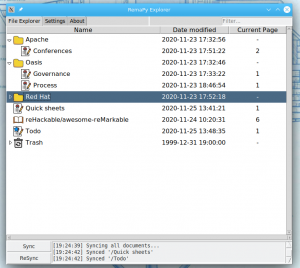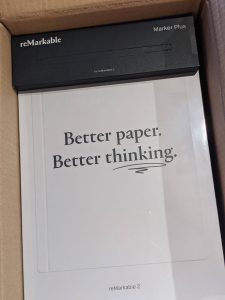I worked election day voting machine service for many years. Here’s why I find claims of election-day fraud so completely unbelievable.
What that entails is showing up at the county court house at 5am, and hanging out there all day. Any time one of the voting machines failed in any way, I would be rushed out to the polling station in a police car, and had to fix the machine, while being watched by angry voters and election day officials.
The machines were very reliable, and so this was largely a day spent reading, in the court house waiting room. But those trips out to the polling stations were always stressful and exciting.
One thing I learned, though, is that election day voter fraud is *enormously* unlikely.
Every action that is taken at the polling stations, as well as during the vote counting, is watched over by (at least) two election officials, one from each political party on the ballot. These officials are usually senior citizens who know everyone in the county. They also know each other, and have argued with each other about politics for decades. They are looking for a reason to throw you out of the polling station, and if they see the slightest sign of something fishy, they will absolutely do so. And they are watching each other, with great suspicion, waiting for their counterpart to do something wrong.
Also, everything that happens in the polling station, or in the court house at the end of the day, requires each officer to sign something. Open the spare voting machine? 4 signatures. Close a defective voting machine? 4 signatures and a zip tie (and sign the zip tie). Checking a voter’s ID? Everybody has to have a look. Was the voter someone related to the election official? Call over all the other officials in the room to sign something, in case there’s nepotism.
Our democracy is guarded by an army of little old ladies, who consider this their highest duty of the entire year, and they are *not* going to let you get away with anything. (No, they’re not all senior citizens, and they’re not all women, but most of them are.)
In order to commit election-day voter fraud, you’d have to have both a Republican and Democrat election-day official in on it.
When I showed up to service a machine, I could be sure that I would be glared at, asked questions about every single thing that I was doing, and I would be expected to narrate every step, in detail, so that there was no question as to what I was doing. They didn’t trust me. They didn’t trust each other. And they verified every single step.
If at any point they challenged anything I did, my instructions were to stop, call the Sheriff and have him/her call the election commission in Frankfort, and wait for their instructions. Fortunately, it never came to that.
Note: 95% of the time, what I had to do was turn it off and on again. If a machine didn’t work, your best bet was power-cycle, and then swap out the spare. The machines were sealed and didn’t really have any user-serviceable parts other than swapping out the print cartridge and paper tape. Every vote was written to 2 hard drives and some kind of solid-state memory cartridge. The audit process was to press the “Close Poll” button again and have it print the tape again.
Caveats: This was Kentucky, circa 12-15 years ago or so. The exact machines in question were provided by Harp Enterprises, and looking at https://elect.ky.gov/Resources/Pages/Voting-Systems.aspx it appears that they are no longer in service. The newer machines – the eSlate machines that I used voted on last year (I voted by mail this year) are something I have no experience with. I understand that some of the newer machines have network access, either wired or wifi. I consider that a pretty stupid design decision, but I also expect that security is a pretty high priority on the engineering teams that work on these things.






 It arrived a couple of days ago, and I have already moved all of my paper note-taking to it. Indeed, my biggest complaint with it is that I am no longer using my fancy fountain pens and notebooks. And I have been a fountain pen, notebook, snob for more than 30 years.
It arrived a couple of days ago, and I have already moved all of my paper note-taking to it. Indeed, my biggest complaint with it is that I am no longer using my fancy fountain pens and notebooks. And I have been a fountain pen, notebook, snob for more than 30 years.